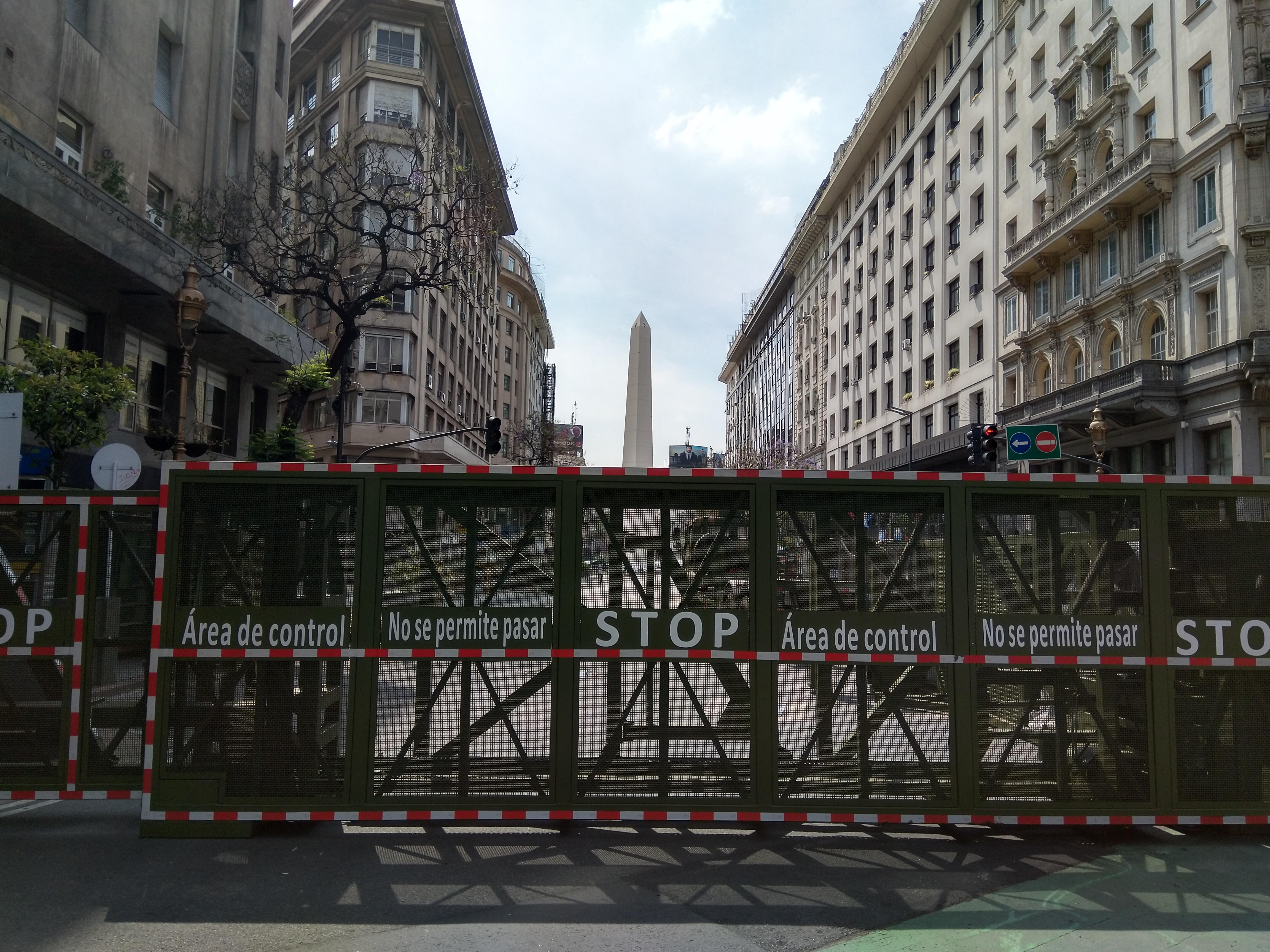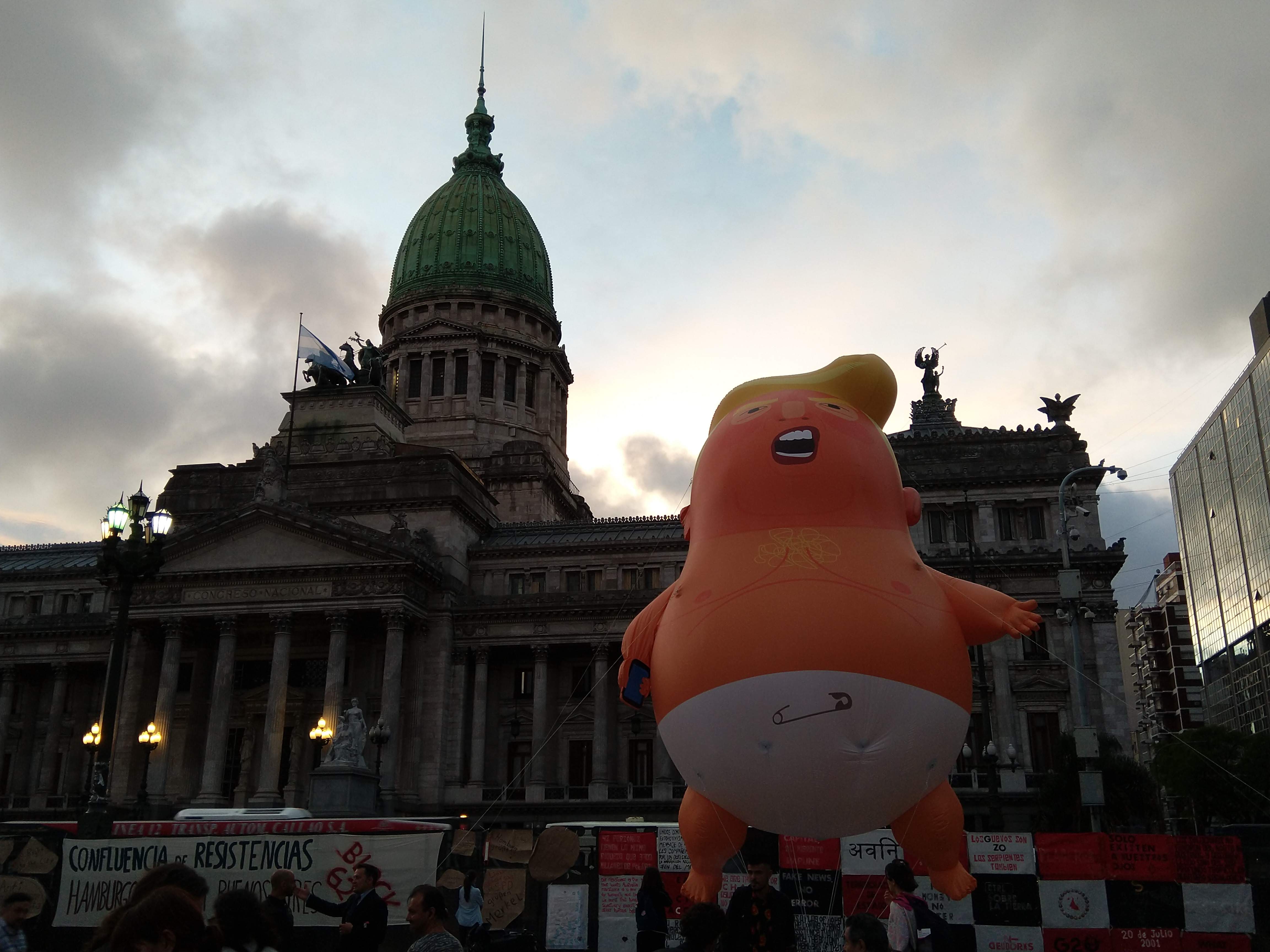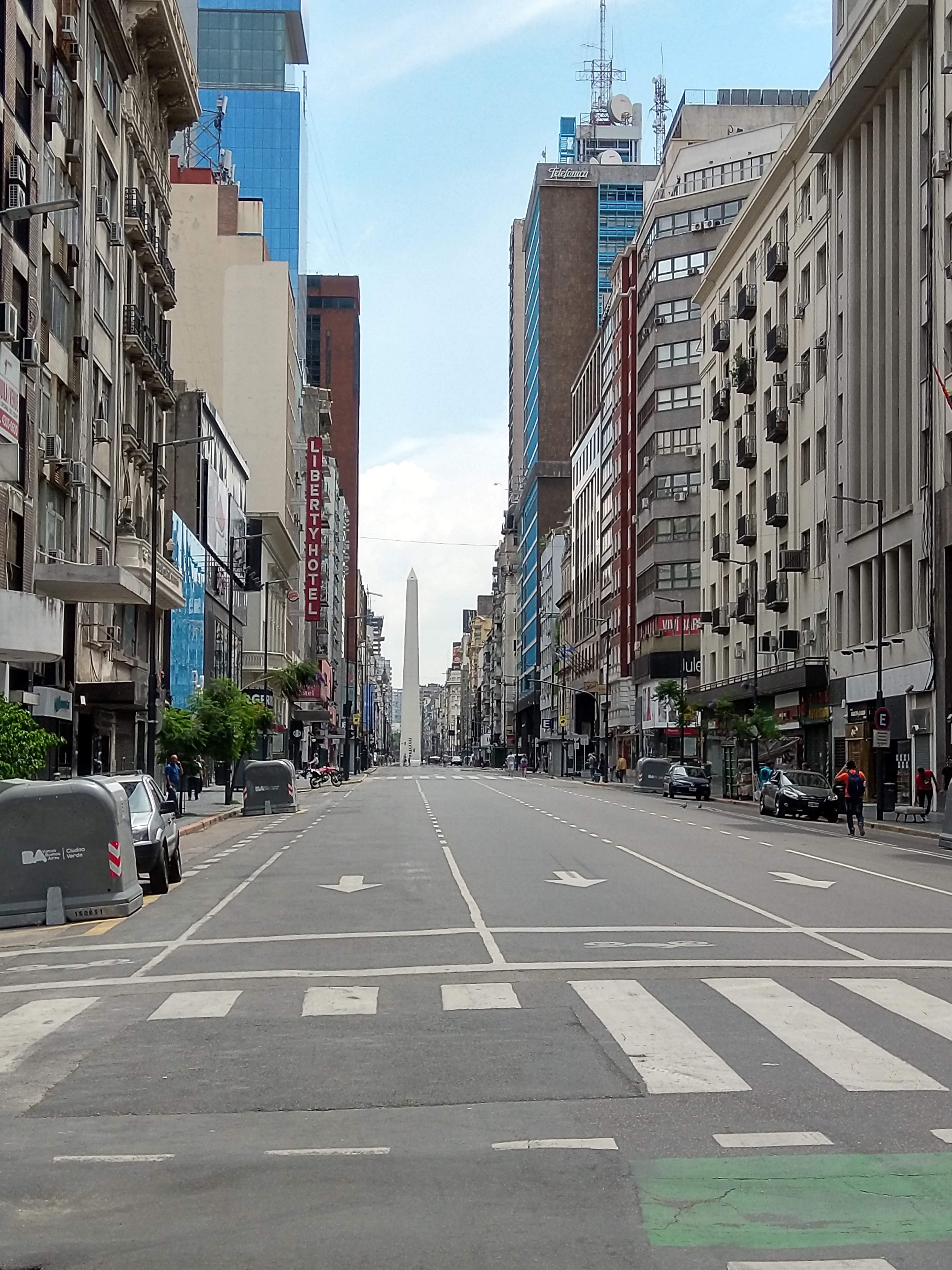|
Today's Opinions, Tomorrow's Reality
Surreal Nightmare By David G. Young Buneos Aires, December 3, 2018 -- Argentina proved that it is capable of hosting a global economic conference -- but only at the cost of evacuating its capital city. When metal barricades started rising across this city in the days before the start of the G20 summit, it looked like pictures of the Berlin Wall going up during the cold war. As world leaders started flying into the city, Portenos were evacuating, urged by their government to leave the city with the carrot of a public holiday and the stick of warnings about violent anti-capitalist demonstrations.
Such violent demonstrations never came to pass. There were peaceful protest marches, Marxist banners, and a baby Trump balloon in front of Congresso in the days leading up to the summit. But by Friday morning, the first day of the summit, the city was on total lockdown. An international zone stretching from the Casa Rosada executive office north to the Retiro train station was ringed by metal barriers and riot police. Fighter jets streaked overhead. Though meetings were held at a convention center a few miles north, the international zone hosted the hotels where the vistiting dignitaries stayed, their motorcades screaming down the otherwise deserted streets. During the days of the summit, after the dark-suited foreigners with lanyards around their necks had departed for the convention center, streetscapes in the international zone were deserted. Tourists took selfies lying in the empty boulevards with the Obelisk in the background. The place had the feel of Alexanderplatz in East Berlin in the 1980s before the wall fell. Police outnumbered real people. Cars were rare. Checkpoints surrounded you. But in contrast to East Berlin, the few businesses staying open reminded you that would were definitely in Argentina. Excellent coffee, crispy medialunas, rich ice cream, unbelievable steaks and Argentine wine were never hard to find. This may be the reason that, unlike East Berlin, nobody really wanted to leave Buenos Aires. Once the dignitaries packed off on Saturday night and Sunday morning, the city took down the barricades and Portenos trickled back in. By Monday morning, memories of the G20 lockdown had faded into little more than a surreal nightmare. Whether or not the G20 was a success for Argentina depends on your perspective. There were no major disruptions, but it came at a huge cost of shutting down the capital city.
Argentina already has a tepid reputation as a country in which to do business, partly fueled by 19 public holidays per year -- almost twice as many as in the United States. Adding one more bank holiday to its economic hub might shave 0.5 percent off its GDP due to lost productivity. Is this really worth it? The country is already in recession, with GDP shrinking by 2.3 percent last year and projected to shrink again this year.1 Consider that Washington DC has hosted many economic conferences including the G20, and has never once instructed citizens to evacuate the city to make it happen. If Argentina is a modern country worthy of G20 membership, why on earth is this even necessary? Notes: 1. Economist, Economic Indicators, December 1, 2018 |




